Horizon
Hyphen's Edge server
Run Horizon in your environment and at the edge for fast, secure access to your feature flags and secrets.
Self Hosting
You can self-host instances of Horizon on your own infrastructure to add redundancy and reduce latency.
When you self-host Horizon, start by creating an API key and grant it access to the projects you’ll run. Horizon uses this key to make calls to Hyphen, so it must have access for every project you require.
Create an API Key
Open the Hyphen Dashboard app and navigate to settings > API Keys
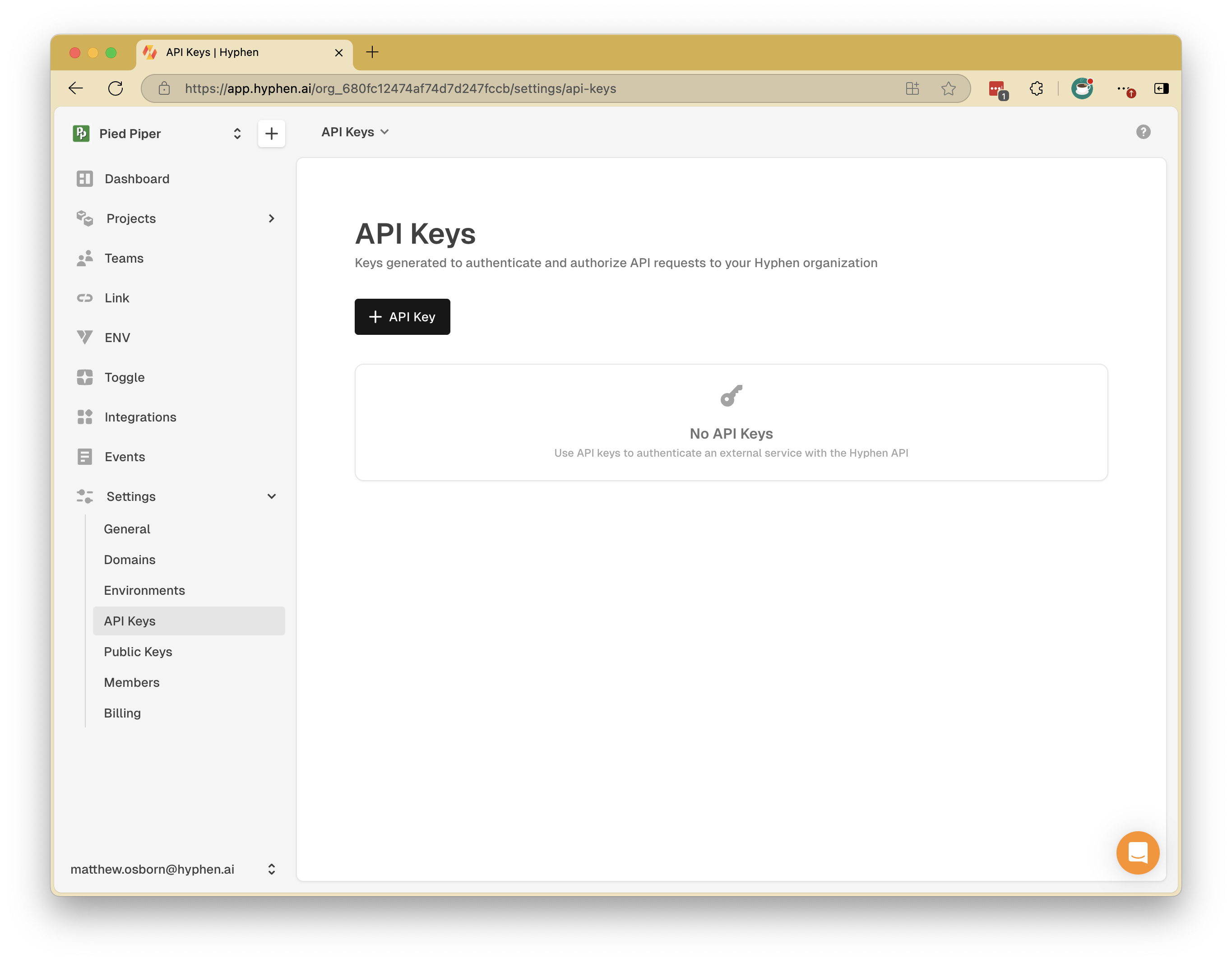
Create a new API Key, giving it project collaborator access to the projects that will be accessed through yourself hosted instance. Don't forget to save the secret some place safe as it will not be shown to you again.
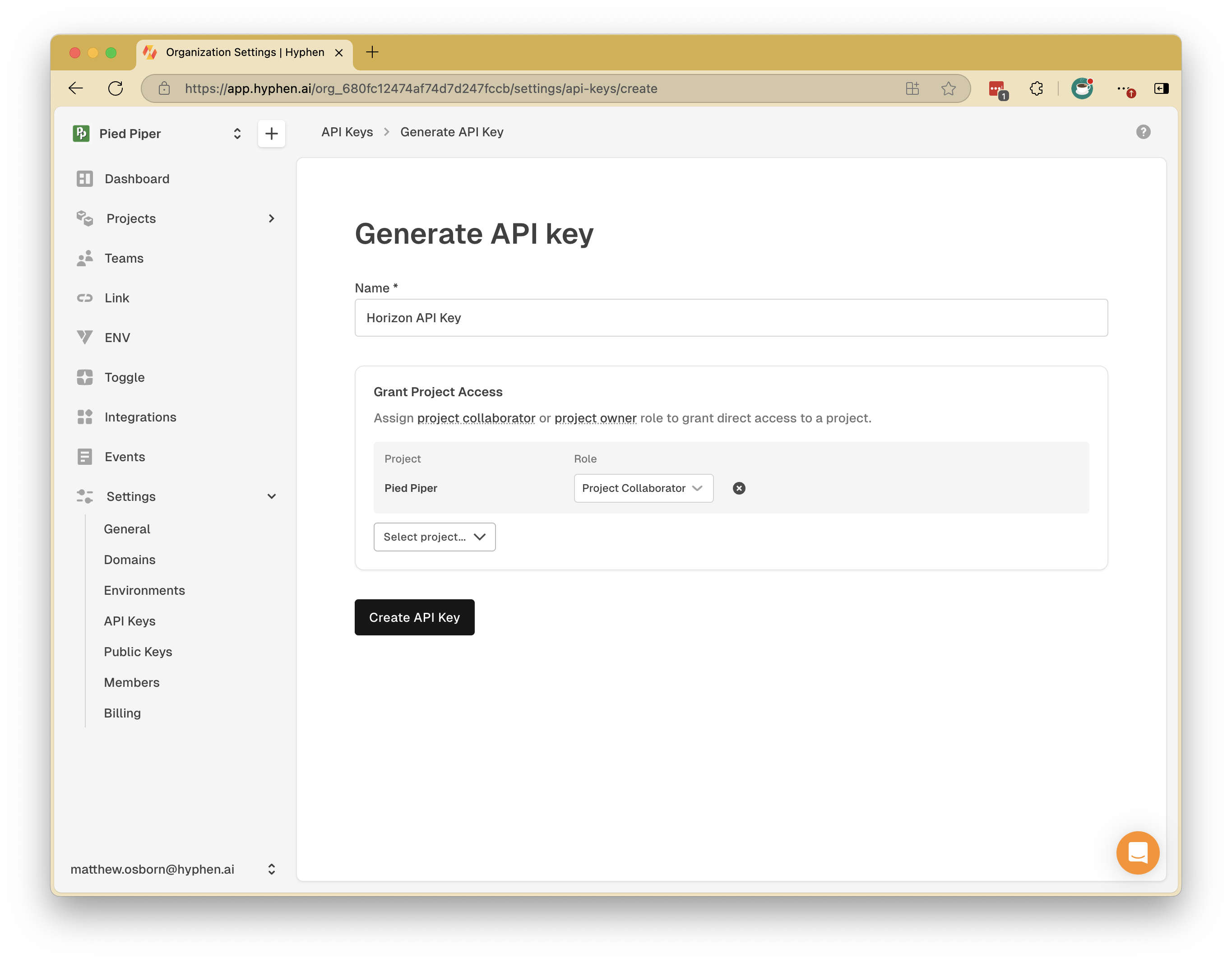
Environment Variables
Horizon uses environment variables, some required and show not, that you may want to customize
| Name | Description | Required |
|---|---|---|
| API_KEY | Used to authenticate with Hyphen services | Yes |
| HYPHEN_BASE_URL | Hyphen may provide you with your own URL, if that is the case use this variable to adjust Horizon's behavior. | No |
Local Docker
This is useful for testing locally and making sure everything is working. You may use whatever port mapping you like.
docker run `
-e API_KEY={you_key} `
-p {pick_a_port}:3333 us-docker.pkg.dev/hyphenai/public/horizon:latest `
-t horizondocker run \
-e API_KEY={you_key} \
-p {pick_a_port}:3333 us-docker.pkg.dev/hyphenai/public/horizon:latest \
-t horizonDeploying to the cloud
Google Cloud
Open the cloud console and navigate to Cloud Run and then Create
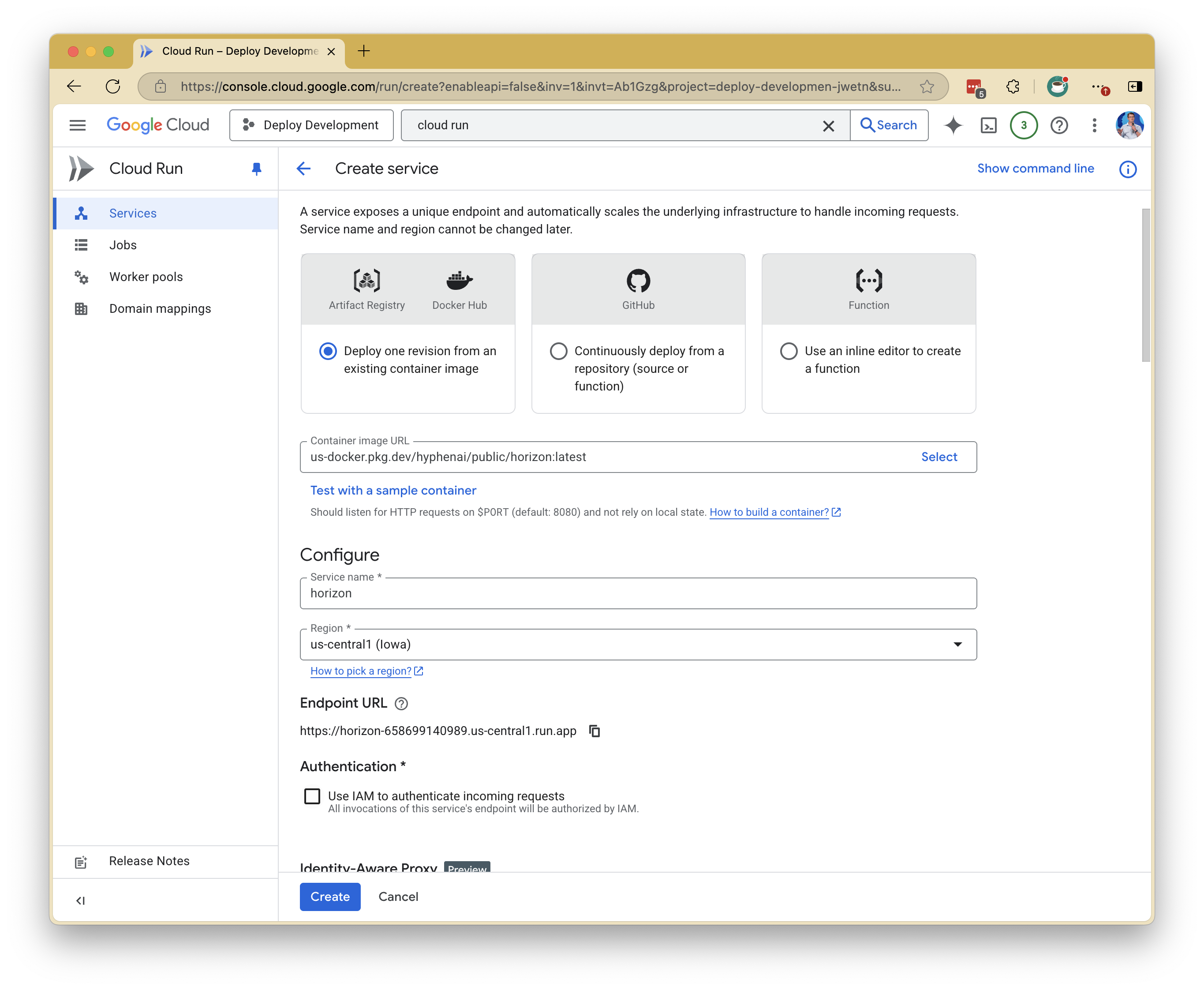
Make the Following Selections
- Deploy using Artifact Registry / Docker Hub
- use the container Image url of
us-docker.pkg.dev/hyphenai/public/horizon:latest - Give the service a meaning, to you, name
- Uncheck
Use IAM to authenticate incoming requests
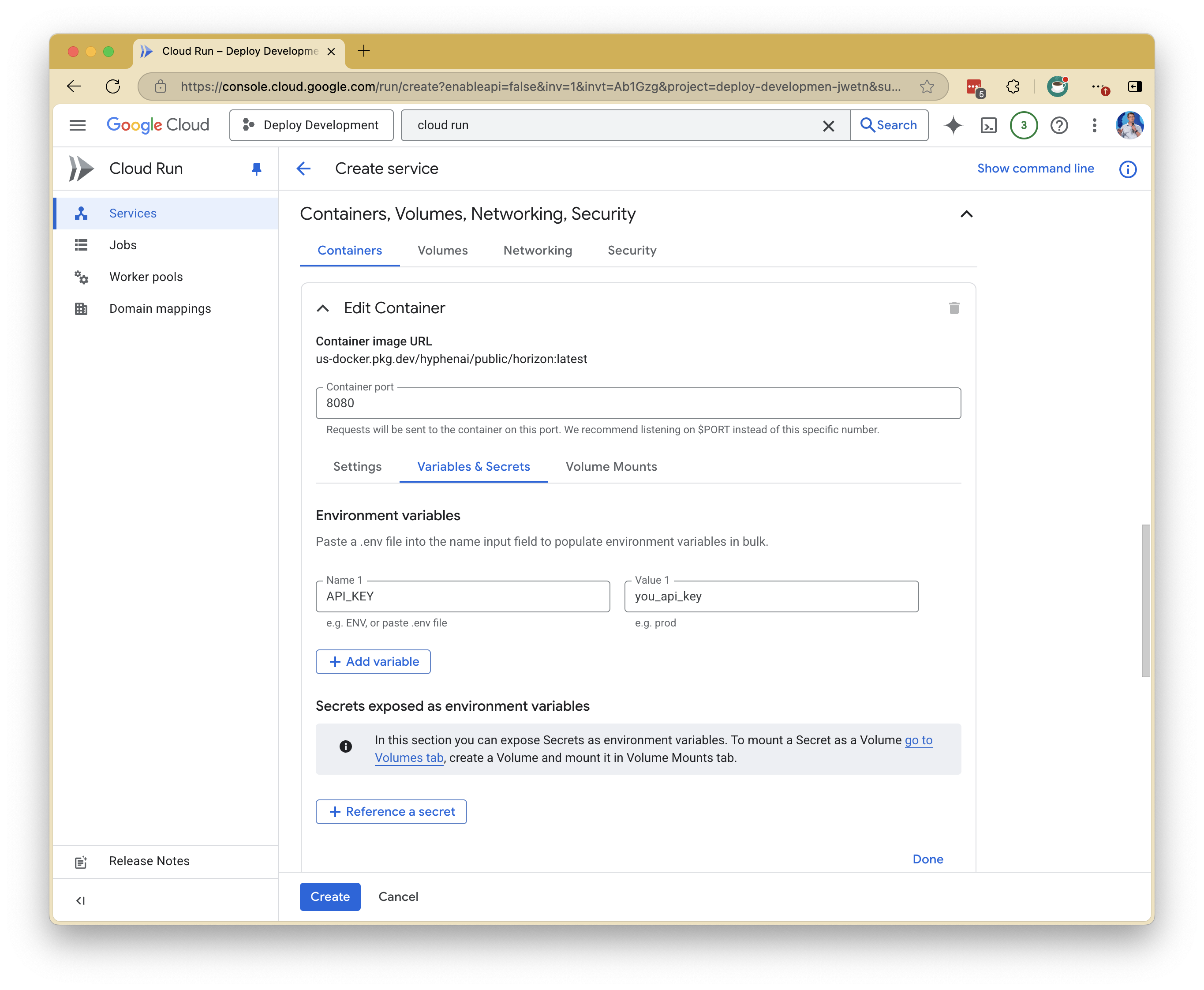
Make the Following Selections
- If you'd like to use a different port do so, but this is optional as Horizon respects the
$PORTvariable - Add the API key secret are an Environment Variable called
API_KEY - Click Create
Azure Container Apps
Open the Azure portal and navigate to Container App and create a new one
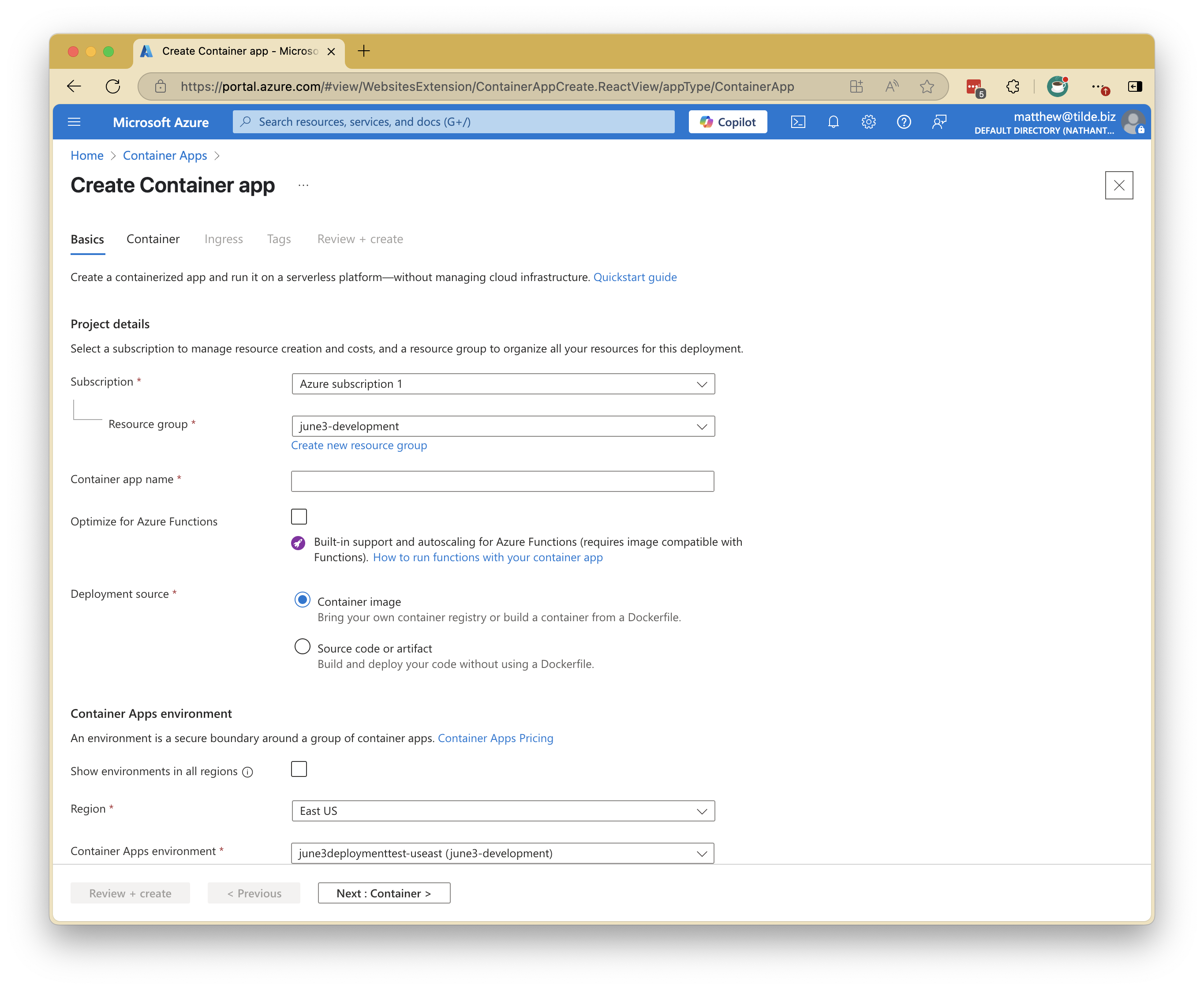
Make the Following Selections
- Choose the correct Subscription
- Choose the correct Resource Group or create a new one
- Choose the correct region
- Choose an existing App Environment or create a new one
- Click Next
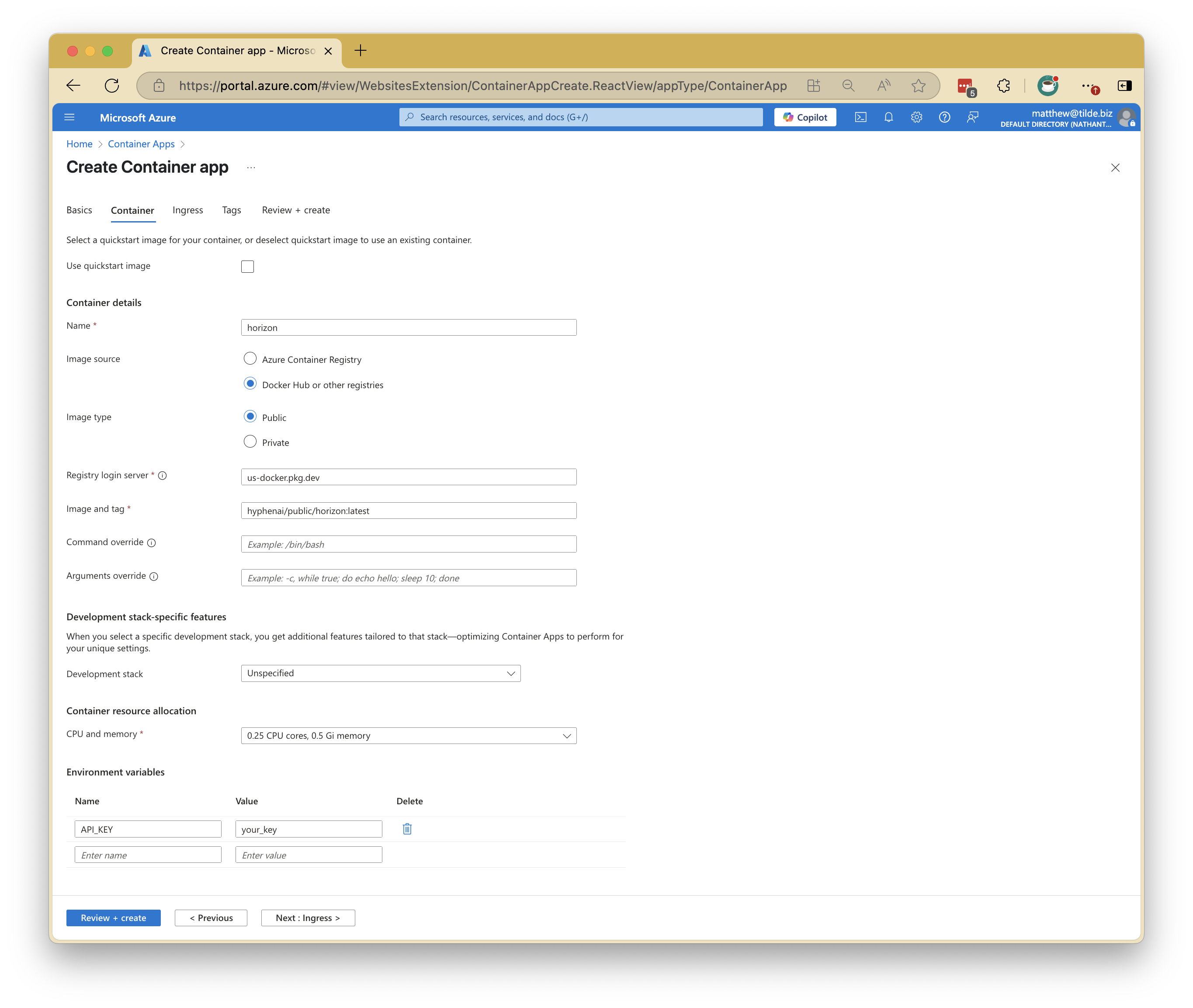
Make the Following Selections
- Give The Container App a meaningful, to you, name
- Select
Docker Hub or other registeries - Image type is public
- login server is
us-docker.pkg.dev - Image and Tag is
hyphenai/public/horizon:latest - Add an environment variable with the name
API_KEYand the value of the API Key Secret you just created. - Click Next
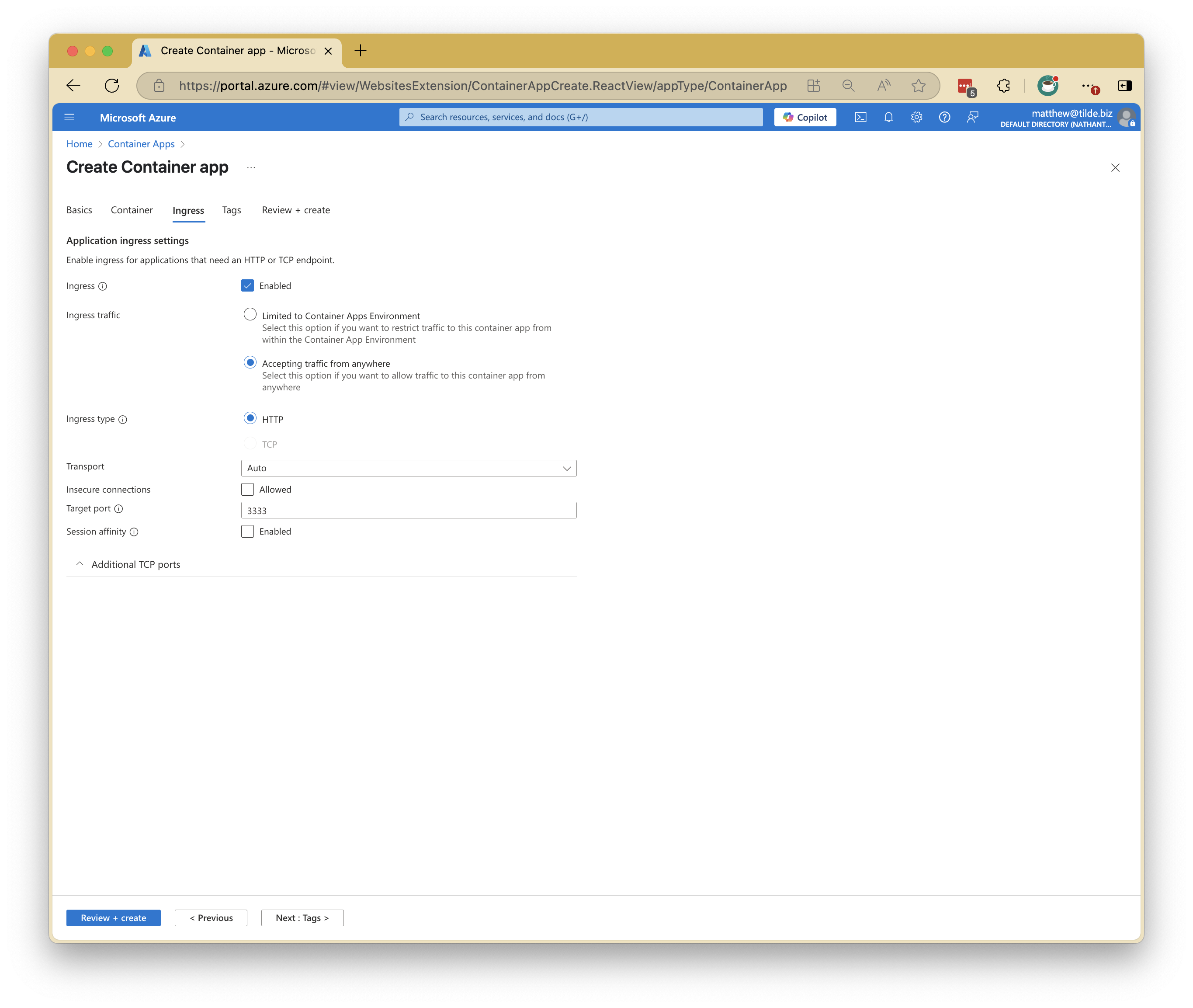
Make the Following Selections
- Enable ingress
- Accept traffic from anywhere
- Target Port should be
3333 - Click Review + Create
Hyphen Deploy
Coming Soon, you'll be able to deploy Horizon directly with Hyphen Deploy!
Configuring the SDK
Configuring the SDKs is dependent on which SDK you are using. As such you should look at the documentation for the specific API. Bellow is an example of using the Hyphen Node SDK
const options = {
publicApiKey: config.hyphenPublicKey,
applicationId: '{YOUR_APP}',
context: { targetingKey: 'anonymous', },
// this my also be the URL of a load balancer, balancing multiple instances
uris: ['{URL_OF_YOUR_INSTANCE}']
};
const toggle = new Toggle(options);Updated 7 months ago
